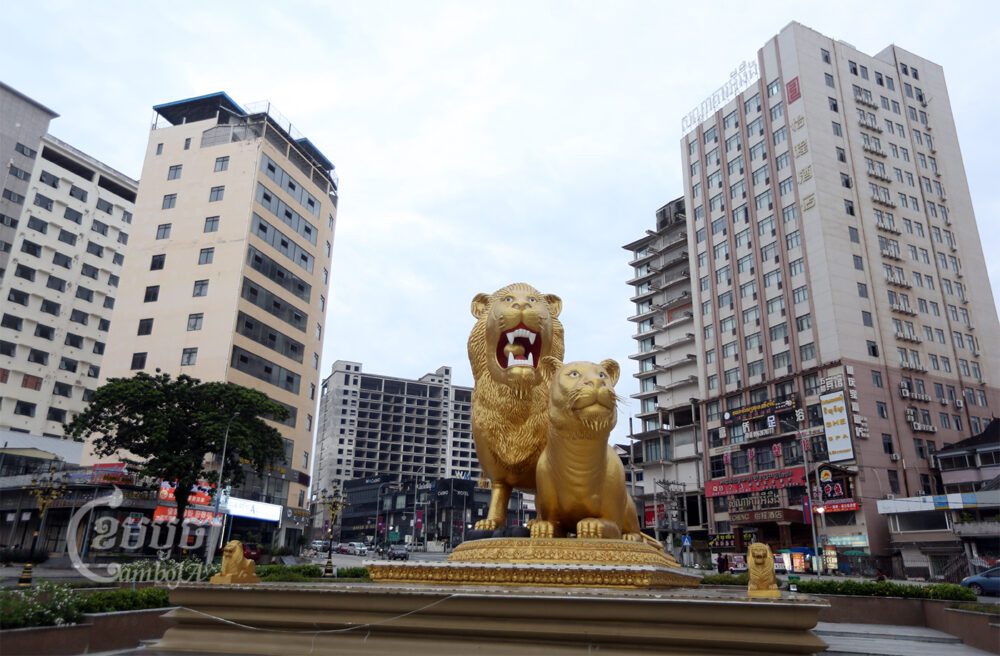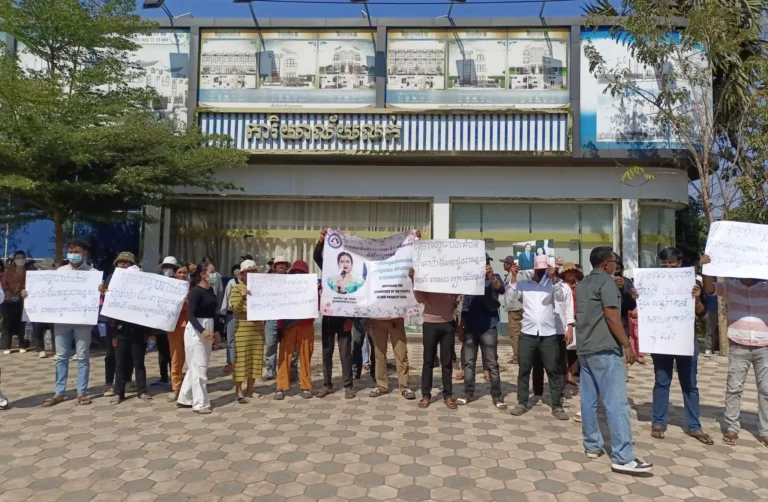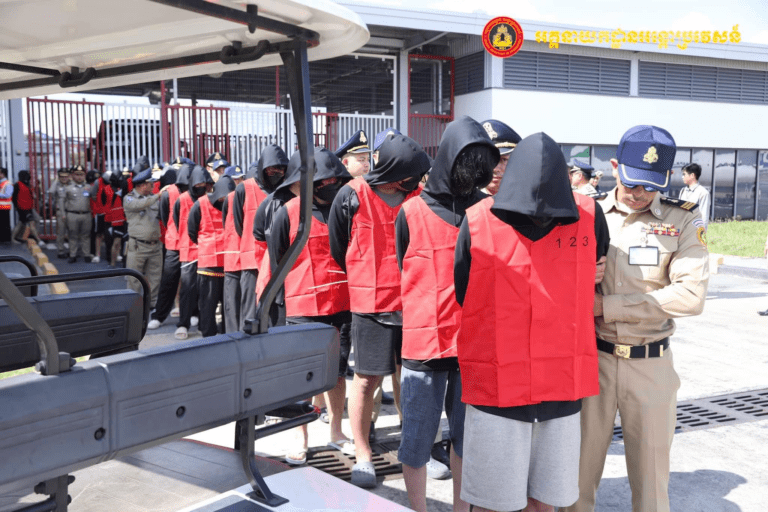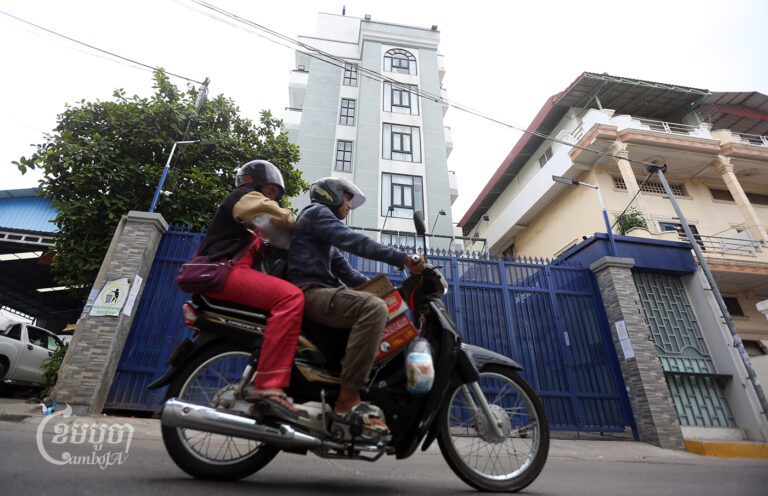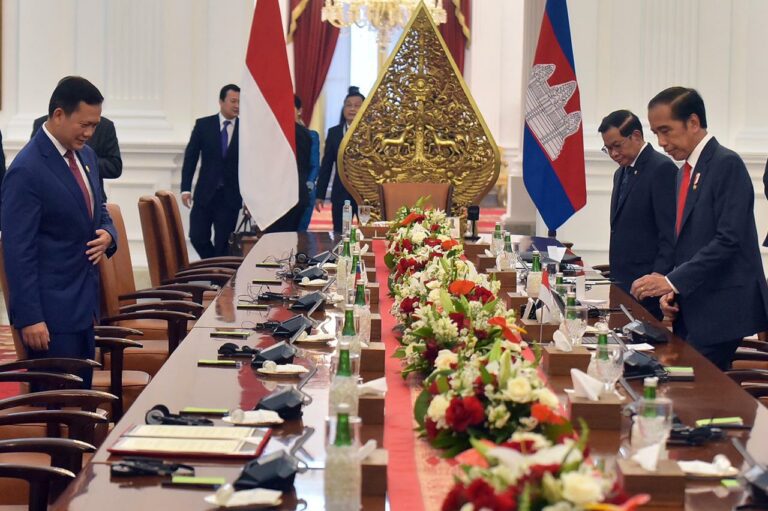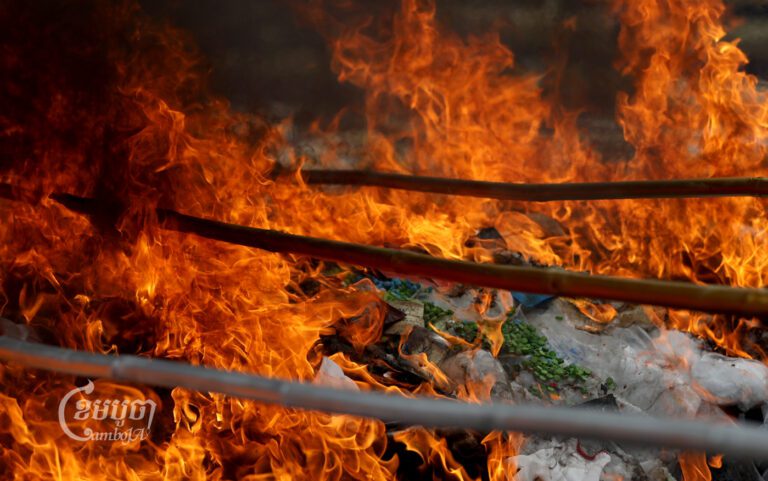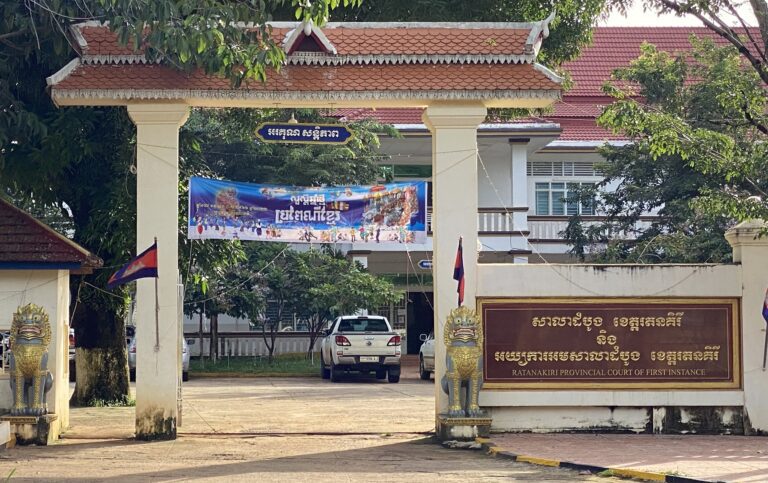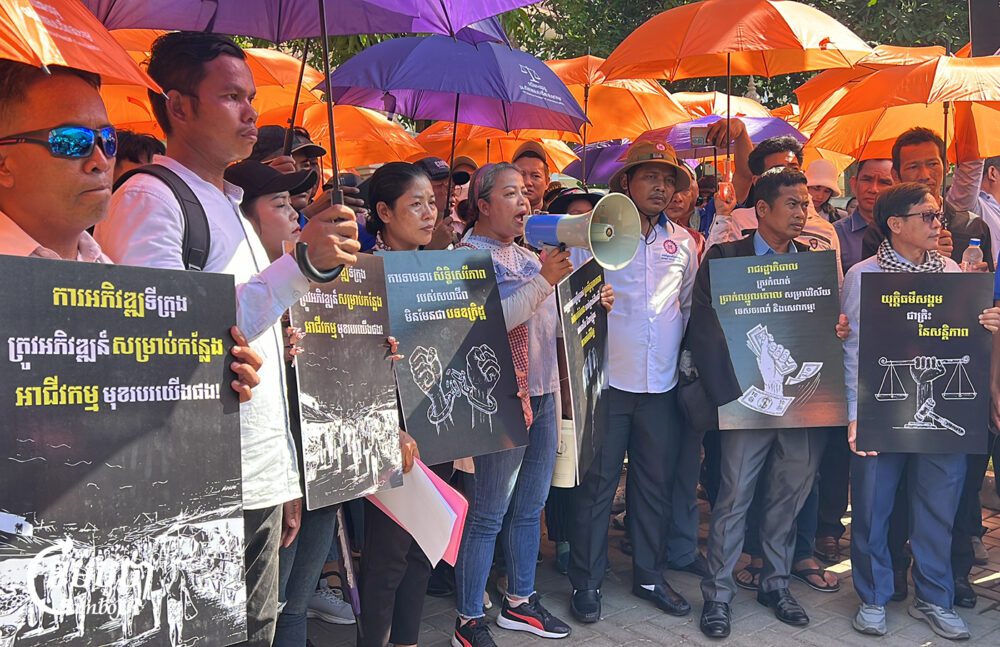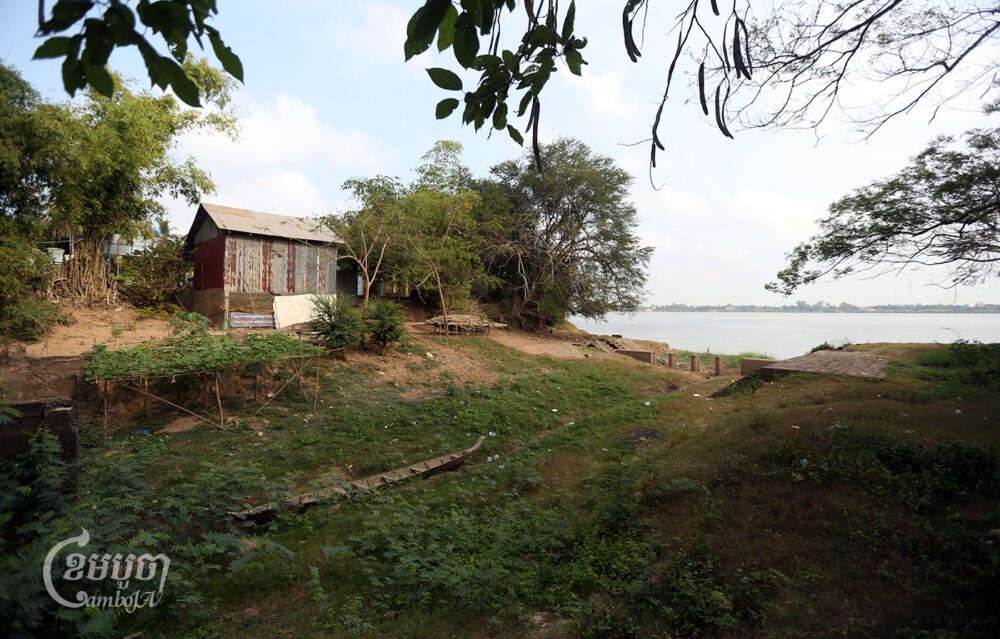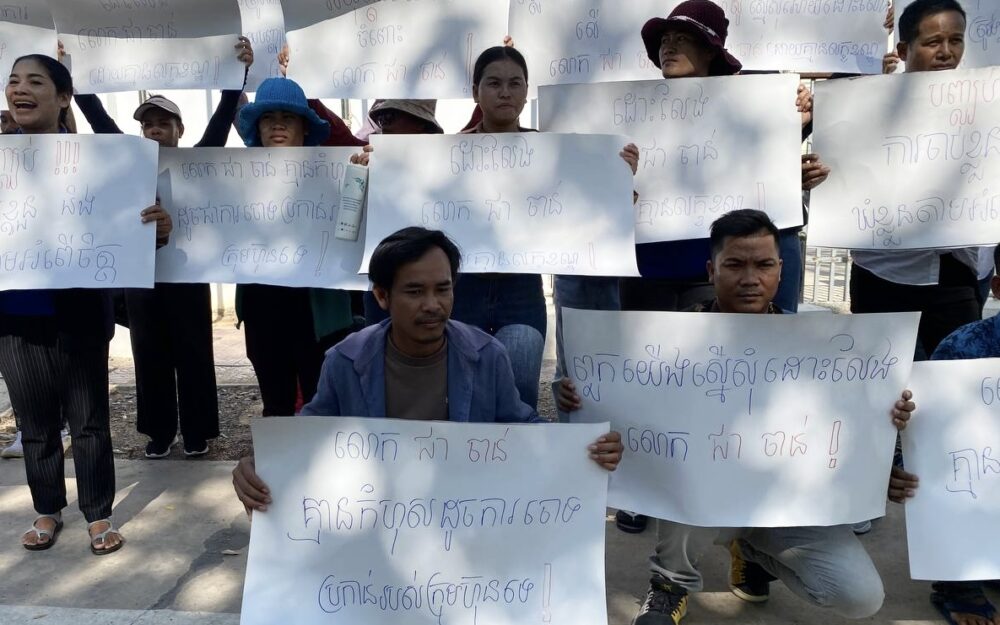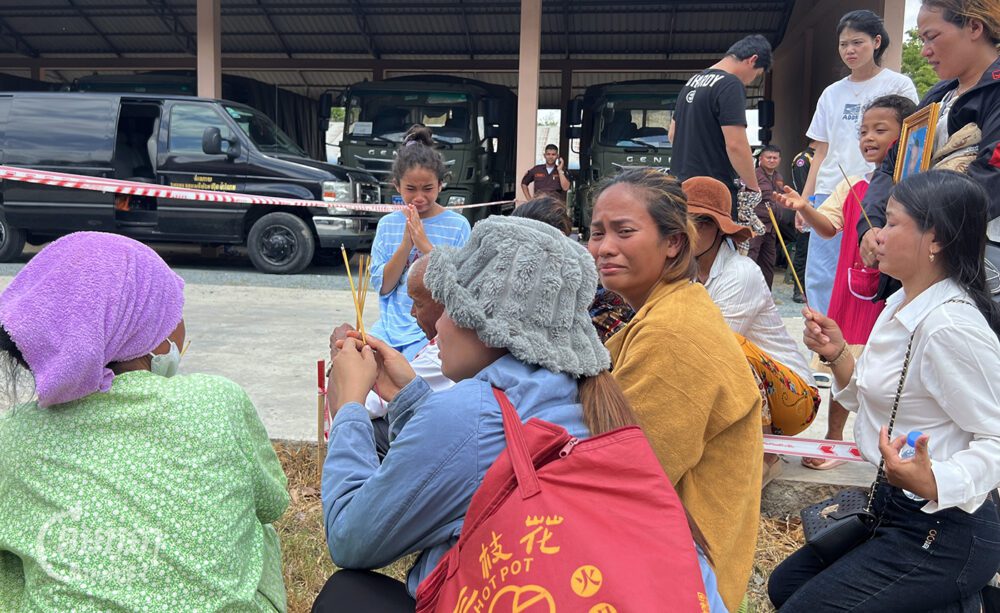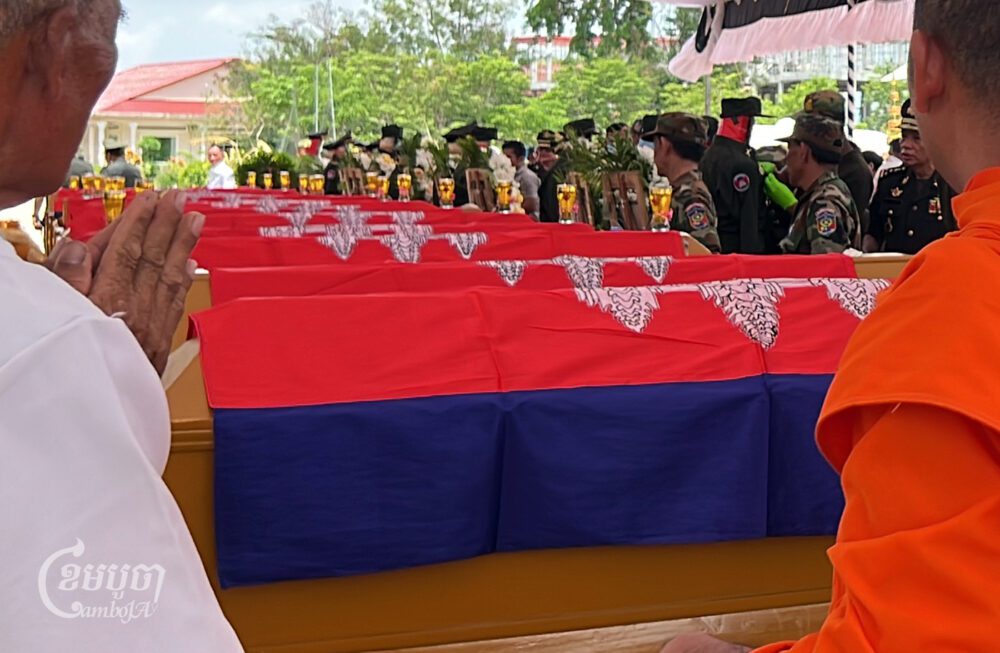Police claim 19 Japanese nationals who were removed from a Sihanoukville compound last week were not held against their will and are being investigated for alleged criminal activity, according to National Police spokesperson Chhay Kim Khoeun.
“There is no confinement in the case, but we have another clue that they may have committed illegal business operations,” Kim Khoeun said in a Telegram message to CamboJA. “We have the clues, and we are investigating because we have had a difficult time finding a Japanese translator, so we must be careful.”
Kim Khoeun said the authorities learned of the Japanese after receiving information from the Japanese Embassy to Phnom Penh. Following the investigation, authorities will decide whether or not to bring charges against the Japanese nationals under immigration and gambling laws.
The Japanese Embassy told CamboJA in an email statement that 19 Japanese citizens, all males between 20 to 50 years old, were “found” at a Sihanoukville hotel on January 24.
“The Cambodian Police has been collecting information from them and the Embassy would like to refrain from making any comments on further details,” the Embassy said. “The Embassy always advises Japanese nationals to give necessary caution about safety in Cambodia.”
The 19 Japanese nationals had rented eight hotel rooms at Mary Beach Hotel and Resort in Sihanoukville’s Buon commune, according to hotel staff. Authorities found no evidence of confinement and torture, according to Preah Sihanouk police chief Chuon Narin.
“They have proper documents, passports and valid visas,” Narin said.
Chea Sreypich, the receptionist at Mary Beach Hotel and Resort, said that the Japanese nationals had rented the hotel rooms for long-term stays and said she believed they had not been confined. Another staffer said the Japanese nationals were allowed to leave the hotel.
“We [at the hotel] were also surprised when the police came down, as there was no confinement because they could walk, exercise and swim at the hotel as normal, like the other guests,” she said, adding that the hotel has been operating as normal.
Japanese nationals were not the only foreign citizens recently removed from alleged scam compounds. Five Malaysian nationals were forced to work in Cambodia-based scam operations and were deported back to Malaysia last week after being rescued, according to Malay Mail. Malaysian authorities said there were at least 300 Malaysian nationals who lodged complaints about involuntary confinement, while 113 victims remain stranded in Cambodia, Laos and other countries, the Malay Mail reported.
Malaysians are reportedly considered valuable for scam operations due to their English and Chinese language skills.
Malaysian Ambassador to Cambodia Datuk Eldeen Husaini Mohd Hashim and Malaysian law enforcement officer Sri Abb Jalil Bin Hassan met with Sihanoukville provincial authorities on January 26 to discuss human trafficking.
At the meeting, Sihanoukville provincial authorities reported that 468 Malaysians — 95 of them women — have been working in casinos, hotels, apartments and other buildings in Sihanoukville.
Cambodian authorities have consistently dismissed reports of human trafficking and confinement, claiming alleged victims were not confined against their will and merely sought assistance to change their workplace. But Malaysian police said human trafficking of Malaysian nationals to Cambodia is a major concern.
“We have received reports of human trafficking from Malaysia on the grounds that the victims have been trafficked, requesting rescue interventions abroad, including in Cambodia,” Hassan told Sihanouvkille authorities, according to the meeting minutes.
Soeng Senkaruna, spokesperson for human rights group Adhoc, said confinement means blocking someone from leaving a building and is under the sole authority of the state, not private companies.
“I think [Cambodian] authorities are trying to play down the situation,” Senkaruna said. “Yes, we can say the cases were the issue of labor dispute, but the international community considers them confinement. Authorities should be careful because if they misunderstand the definition, it will lead to serious accusations against Cambodia.”
In the last two years, hundreds of foreign workers have arrived to compounds in Sihanoukville and across Cambodia after being promised high paying -jobs — only to be violently forced to run a range of online scams, often against their own countrymen back home.
Preah Sihanouk authorities said they received 23 complaints related to confinement and forced labor from October 3, 2022 to January 17, 2023. From January to August last year, authorities rescued 865 foreigners who were trafficked and smuggled to Cambodia, according to Interior Minister Sar Kheng.
An Rama, labor rights NGO Central’s Sihanoukville representative, told CamboJA that since mid-2022 more Malaysian and Indonesian nationals have flocked to work in casinos and hotels in Sihanoukville.
“The influx of foreign workers to work in Sihanoukville would be an opportunity for criminals to commit human trafficking crimes as most foreigners were found without proper documents,” he said.
Central helped rescue a Malaysian national in November last year after she had been confined for around one year at a Chinese-owned casino in Sihanoukville known as Jin Bei 3. She had been promised $800 per month for a customer service job but in reality only received $300 and was forced to work up to 16 hours a day, Rama said.
“According to our network of food delivery workers, when they take food to the hotels and casinos, some casinos owned by Chinese still do not allow workers to leave the compound,” he said.
In the U.S. government’s 2022 Trafficking in Persons report, Cambodia was downgraded to Tier 3, the lowest possible status, as a result of endemic corruption and an unwillingness to hold human traffickers accountable.


